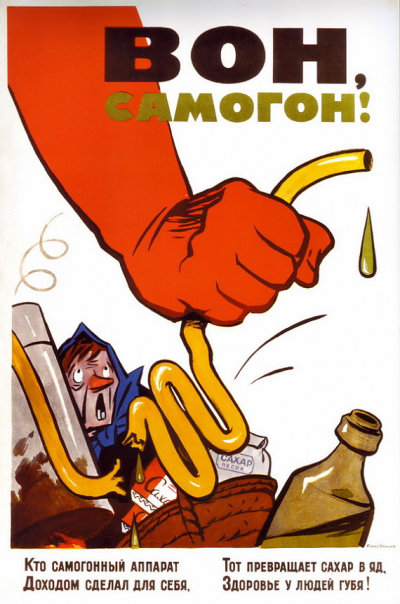
Drugs a Barrier in All Prisons (look to USSR on Alcohol)
In response to “Drugs a Barrier to Organizing in Many Prisons,” first, it’s not many prisons, it’s all! When drugs are present, unity is not. Drugs break the whole down into a degenerate form of individualism. Under the captivity of drugs and/or alcohol, these people are no different than the imperialist sheep that keep us oppressed.
It branches out to affect families of these people. Prison is definitely an overwhelmingly negative environment, but should be a place for personal reflection and growth. I take every opportunity to absorb knowledge, bring those who are in my company up with me. It makes absolutely no sense to become and remain stagnant in here. It pretty much guarantees failure once they return to freedom.
Drugs in prison leads to other criminal acts, such as extortion, violence, etc. It goes nowhere! Lenin vowed that a socialist state would never produce or sell alcohol. Basically prohibition. Alcohol nor drugs were tolerated. Lenin knew the drastic effects they had on people, and the inevitable damage it causes to the unity of the people. Until people realize the extreme hindrance drugs are, unity will be out of reach. All myself and other comrades can do is do our best to educate others, to shed light on truths.
In all situations, we should remember Lenin’s warnings:
“Illusions and self-deceptions are terrible, the fear of truth is pernicious. The party and the people need the whole truth, in big things and small. Only the truth instills in people an acute sense of civic duty. Lies and half-truths produce a warped mentality, deform the personality, and prevent one from making realistic conclusions and evaluations, without which an active party policy is inconceivable.”
People constantly fall prey to ideological lies. They lack a sense of discipline and self-awareness. This exists not only in prisons, but in society. Society is overwhelmingly a slave-morality, following the masses – doing what they believe will satisfy norms, set forth by imperialists. Comrades probably feel like the “minority,” but must always keep in mind that this “minority” is strong, rooted in truth and unity.
MIM(Prisons) responds: Lenin did oppose alcohol in the Soviet Union, both as a question of capitalist enterprise that was bad for the peasants and also as a health issue. On the question of monopolies he wrote:
“This is quite apart from the enormous amount of money the peasant communes have lost as a result of the liquor monopoly. Hitherto they obtained a revenue from liquor shops. The Treasury has deprived them of this source of revenue without a kopek compensation!”(1)
In studying the history of alcohol in the Soviet Union, we came across some writings by Anna Louise Strong from 1925. As she explained:
“The war with drink, like everything else in Russia at present, is not a thing by itself, but is tied up with the ideas of the Revolution. The bootlegger is denounced, not merely as a lawbreaker, but as a man who profits in the misery of others. The advocates of strong drink, when they venture to express themselves, are hotly denounced, not merely as mistaken, but as ‘counter-revolutionists, poisoners of Russia!’”(2)
In 1925 the Soviet Union finally had a good harvest of grain after years of war and famine. This presented an opportunity for serious alcohol production. And one official argued that the government should encourage it and make money off the taxes. Pravda, the official newspaper of the Communist Part of the Soviet Union, denounced this position:
“Now after our long strain of war and famine, when national health is at a low ebb, legalised alcohol would be infinitely more dangerous than it was before,” … “He proposes to get rid of the bankruptcy in our budget. But he would drive that bankruptcy into the bodies and minds and souls of our people. The party cannot overlook such suggestions even in the conversational stage. We understand what you have in view. We have made many concessions because of our poverty, but such a concession as the surrender of our national soberness you will not get. This shall not pass.”(2)
As Strong concludes about the Soviet Union in 1925:
“Drink is attacked as a problem of public health and national morale, rather than a question of individual morals. Repressive measures are occasionally quite severe and public demand is growing to make them even more stringent. But there is also universal agreement, in every article one reads and every official one talks to, that the final solution can come only by substituting an interesting cultural life for the lower pleasures of drink.
“As for state manufacture of vodka, about which rumours from time to time arise, the words of Lenin himself laid down the government’s attitude. When the new economic policy was under discussion and the question was raised in the conference of the Communist party how far they were prepared to go in making concessions to the peasants, Lenin outlined the policy as follows:
‘Whatever the peasant wants in the way of material things we will give him, as long as they do not imperil the health or morals of the nation. If he asks for paint and powder and patent leather shoes, our state industries will labour to produce these things to satisfy his demand, because this is an advance in his standard of living and ’civilisation,’ though falsely conceived by him.
‘But if he asks for ikons or booze–these things we will not make for him. For that is definitely retreat; that is definitely degeneration that leads him backward. Concessions of this sort we will not make; we shall rather sacrifice any temporary advantage that might be gained from such concessions.’”
Related Articles:









